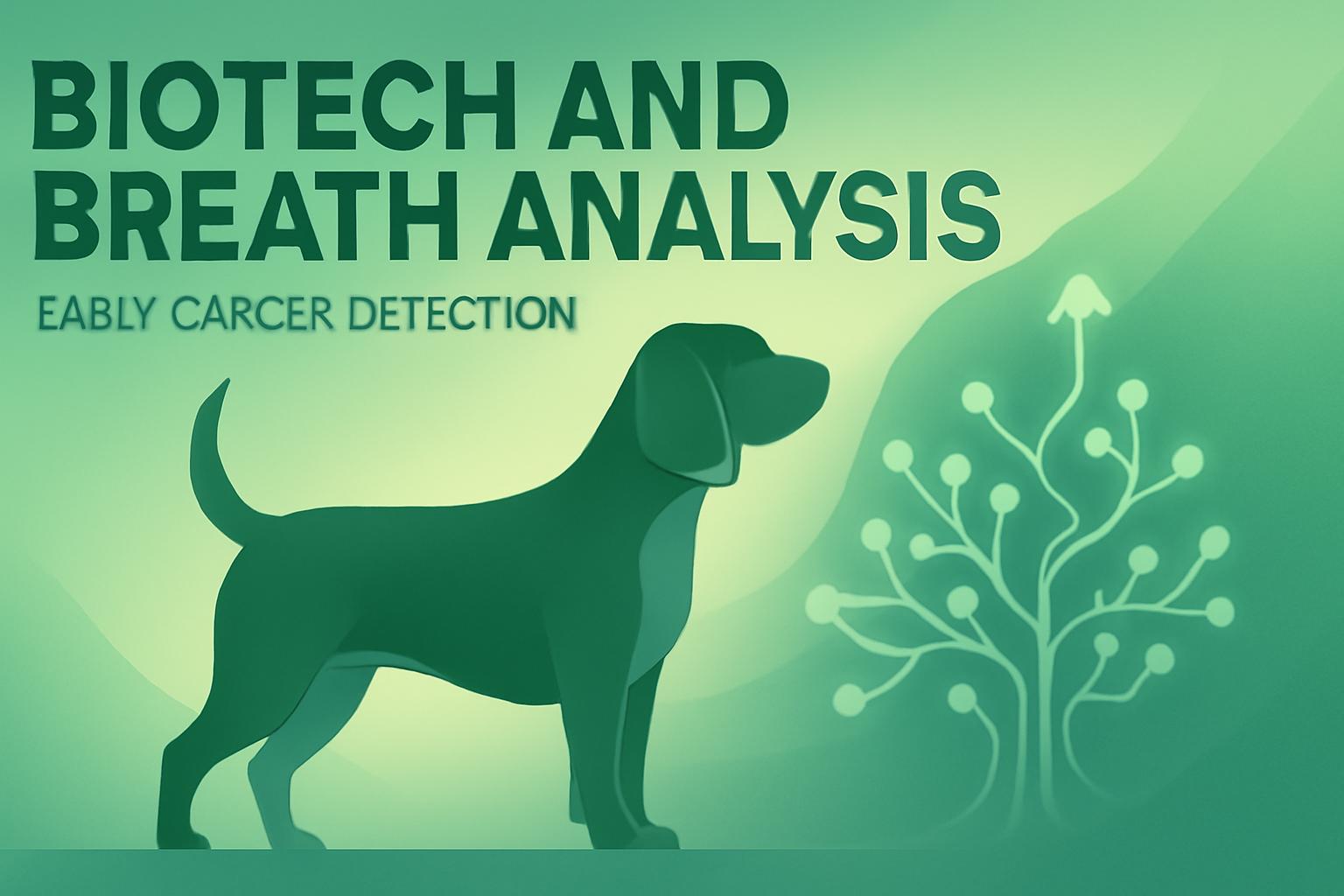SpotitEarly Innovates At-Home Cancer Screening Using Trained Dogs and AI
SpotitEarly, an emerging biotech company participating in Startup Battlefield at TechCrunch Disrupt 2025, is pioneering a unique approach to early cancer detection. By harnessing the extraordinary olfactory abilities of trained dogs combined with advanced artificial intelligence, the company offers a non-invasive, at-home screening test capable of identifying multiple common cancers from human breath samples.
Current Landscape of Cancer Screening
Early detection remains critical in improving cancer survival rates. While multi-cancer early detection (MCED) tests remain under research and lack widespread FDA approval, some options are commercially accessible. For instance, the Galleri blood test by Grail or whole-body MRI scans offered by companies such as Prenuvo and Ezra provide early detection but often come with high price tags exceeding $2,000.
SpotitEarly aims to disrupt this space by offering an affordable, accessible alternative leveraging canine biosensors and AI technology.
Technology and Methodology
SpotitEarly’s screening process requires users to collect a breath sample at home and send it to the company’s laboratory. There, a pack of 18 trained beagles analyzes the samples for cancer-specific volatile organic compounds. These dogs are conditioned to signal the presence of cancer by sitting, a behavior meticulously monitored and validated by the company’s AI platform.
To enhance accuracy, the laboratory environment is equipped with cameras and microphones to track the dogs’ body language, breathing patterns, and heart rates. Machine learning algorithms establish individualized baselines for each dog, enabling precise differentiation between normal and cancer-indicative signals.
“We have cameras on top of the lab. We have a microphone that captures the dogs’ breathing patterns. We also monitor their heart rate. So basically, the machine learning knows the baseline of the entire dog pack. That’s what makes it more accurate than just a handler looking at a dog.” – Shlomi Madar, CEO of SpotitEarly
Clinical Validation
SpotitEarly’s research, published in Nature’s Scientific Reports, demonstrated that their trained dogs could detect early signs of breast, colorectal, prostate, and lung cancers with an accuracy rate of 94%. This double-blind clinical study involved 1,400 participants and underscores the potential of canine olfaction combined with AI to revolutionize cancer screening.
Company Background and Funding
Founded in Israel in 2020 by Shlomi Madar and his co-founders, including a former K9 unit commander, SpotitEarly has raised $20.3 million in funding. Investors include Hanaco VC, Menomedin VC, Jeff Swartz (former CEO of Timberland), and Avishai Abrahami (CEO of Wix.com). The capital injection will support expanded clinical trials and facilitate market entry into the United States.
Market Launch and Pricing
SpotitEarly plans to launch its at-home cancer screening kits in the U.S. next year via a network of physicians. The initial test for breast cancer will be priced at approximately $250, with subsequent screenings for additional cancers offered at a reduced incremental cost. This pricing strategy aims to make multi-cancer detection more affordable than existing options such as the Galleri test, which typically costs around $950.
Company Culture and Approach
SpotitEarly emphasizes the welfare and integral role of its canine team. Every employee is required to be a dog enthusiast, with the dogs enjoying ample space for play and companionship alongside their work duties.
“We don’t just use them as biosensors. They have plenty of room to play. They’re great sneakers, great workers, but also great companions.” – Shlomi Madar, CEO of SpotitEarly
FinOracleAI — Market View
SpotitEarly’s innovative combination of canine olfaction and AI-driven analysis presents a promising advancement in early cancer detection technology. By targeting affordability, accessibility, and accuracy, the company is well-positioned to disrupt the multi-cancer screening market, traditionally dominated by costly blood tests and imaging.
- Opportunities: Expansion of clinical trials could validate broader cancer detection capabilities, increasing market adoption.
- Risks: Regulatory approval processes and consumer acceptance of animal-assisted diagnostics remain potential hurdles.
- Competitive Edge: Integration of physiological monitoring and AI enhances detection accuracy beyond conventional canine scent work.
- Market Potential: Pricing strategy undercuts existing tests, potentially democratizing access to early cancer screening.
- Future Developments: Successful roll-out could pave the way for additional disease detection applications using similar biosensor models.
Impact: SpotitEarly’s approach could significantly improve early cancer detection rates, reduce screening costs, and introduce a novel diagnostic paradigm combining biotechnology and AI.













